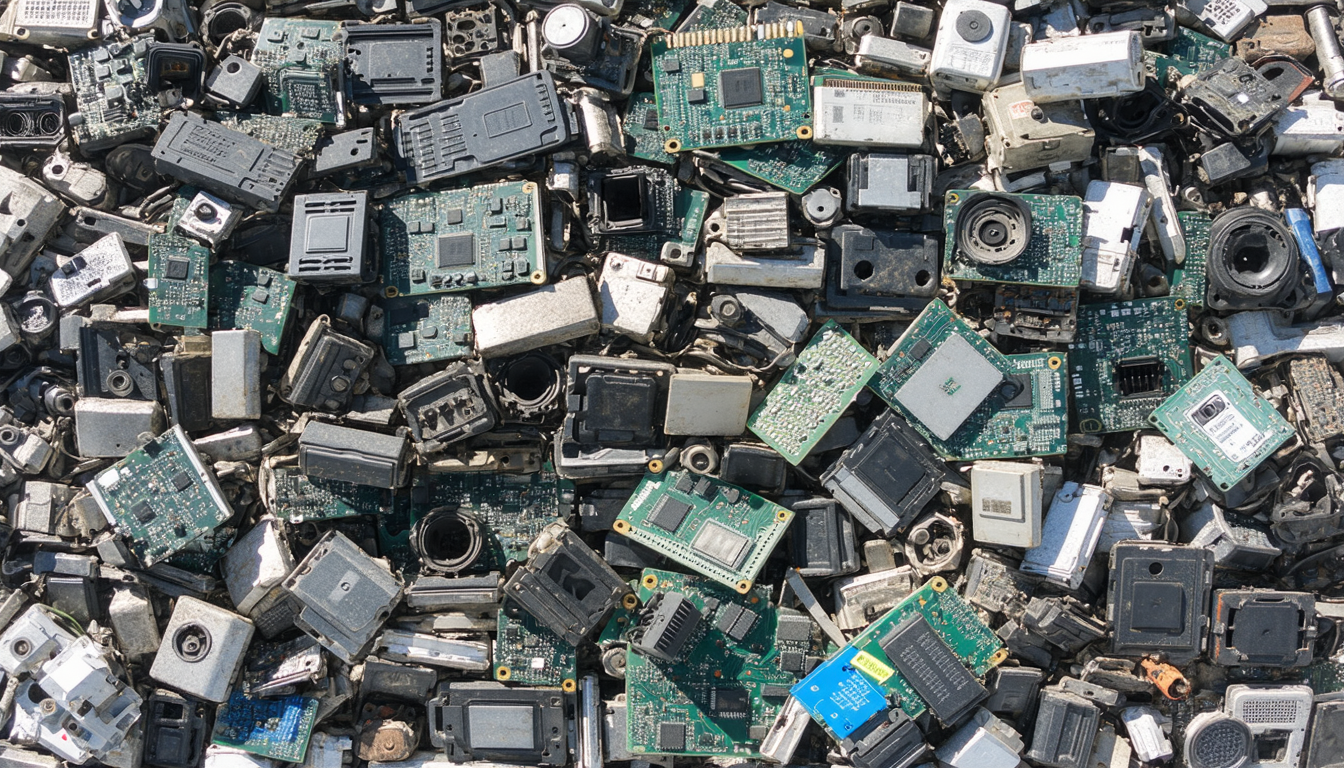Introduction
In Scott County, the growing challenge of electronic waste, or e-waste, has emerged as a pressing environmental and public health concern. As households and businesses discard outdated devices at an alarming rate, local authorities and environmentalists are sounding the alarm on improper disposal practices. This article delves into the current state of Scott County e-waste management, explores recent initiatives to tackle the issue, and examines the broader implications for residents and policymakers across the United States. With mounting piles of discarded electronics, the need for sustainable solutions has never been more critical.
The Rising Tide of E-Waste in Scott County
Scott County, located in the heart of the Midwest, mirrors a national trend of escalating e-waste generation. According to the Environmental Protection Agency (EPA), the U.S. generated approximately 6.9 million tons of e-waste in 2019, with only 15% being recycled. In Scott County alone, local waste management reports indicate that over 500 tons of electronic devices were discarded in 2022, a 20% increase from the previous year. These figures highlight a growing problem as smartphones, laptops, and other gadgets become obsolete faster than ever.
Improper disposal of e-waste poses significant risks. Toxic materials like lead, mercury, and cadmium can leach into soil and water, endangering ecosystems and human health. For Scott County residents, this issue hits close to home as landfill capacity dwindles and illegal dumping becomes more prevalent.
Local Initiatives to Combat Scott County E-Waste
Recognizing the urgency, Scott County officials have rolled out several programs to address the e-waste crisis. In early 2023, the county launched a series of free e-waste collection events, allowing residents to drop off old electronics at designated sites. Over 2,000 households participated in the first event held in March, diverting nearly 50 tons of waste from landfills. Additionally, partnerships with certified recyclers ensure that collected items are processed responsibly.
According to Jane Harper, a sustainability coordinator for Scott County, “These initiatives are a step forward, but we need sustained community engagement and stricter regulations to make a lasting impact.” Her statement underscores the importance of public awareness alongside policy action.
Impact on Stakeholders
The e-waste challenge affects a wide range of stakeholders in Scott County. For residents, improper disposal can lead to environmental hazards and potential fines for illegal dumping. Small businesses, often lacking resources for proper disposal, face compliance challenges under state and federal guidelines. Meanwhile, local government bodies grapple with funding constraints to expand recycling infrastructure.
Environmental groups are also vocal about the broader implications. They argue that without robust systems in place, Scott County risks becoming a microcosm of a national crisis. Advocacy for extended producer responsibility (EPR) laws—where manufacturers are held accountable for their products’ end-of-life disposal—is gaining traction as a potential solution.
Future Outlook and Potential Solutions
Looking ahead, the trajectory of Scott County e-waste management hinges on innovation and collaboration. Experts suggest that investing in advanced recycling technologies could recover valuable materials like gold and copper from discarded electronics, creating economic incentives. Additionally, educational campaigns could encourage residents to prioritize repair over replacement, reducing waste at the source.
On a national level, policymakers are watching states like California, which have implemented stringent e-waste laws, as potential models for replication. However, opinions differ on how much regulation is feasible without burdening businesses. A balanced approach, combining incentives for manufacturers and accessible recycling options for consumers, may offer the most viable path forward.
In conclusion, the e-waste crisis in Scott County serves as a stark reminder of the urgent need for sustainable waste management practices. While local initiatives show promise, long-term success depends on community participation, technological advancements, and supportive policies. As this issue continues to evolve, Scott County could become a blueprint for other regions striving to address the mounting challenge of electronic waste.
Frequently Asked Questions (FAQ)
- What is considered e-waste in Scott County?
E-waste includes discarded electronic devices such as computers, televisions, mobile phones, printers, and batteries that contain hazardous materials. - Where can I recycle e-waste in Scott County?
Residents can participate in county-organized collection events or drop off items at designated recycling centers. Check the official Scott County website for updated schedules and locations. - Why is proper e-waste disposal important?
Improper disposal can release toxic substances into the environment, harming soil, water, and air quality while posing health risks to communities. - Are there penalties for illegal dumping of e-waste in Scott County?
Yes, illegal dumping can result in fines and legal action under local ordinances aimed at protecting the environment. - How can I reduce my contribution to Scott County e-waste?
Opt for repairing devices when possible, donate usable electronics, and always recycle through certified programs to minimize environmental impact.

